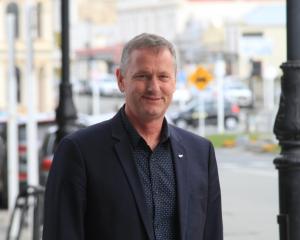
Footage from the camera, installed by the man’s concerned daughters at Iona Home and Hospital, reveals he was bullied and intimidated by three separate carers over several days.
A subsequent investigation by the aged-care commissioner has found two of the carers acted abusively towards him, one failed to report the abusive behaviour and that widespread failures in the man’s care reflected "a culture of disrespect by caregivers at Presbyterian Support Otago (PSO) towards those under their care".
Commissioner Carolyn Cooper said the man’s rights under the Code of Health and Disability Services Consumers’ Rights (the code) were breached while he was living in the home’s dementia unit.
He had multiple medical conditions in addition to his dementia, including cancer, and had one leg amputated.
His care plan said he needed significant assistance with moving around and personal care.
Incidents of aggression by the man were reported. His family were concerned that staff could be contributing to the behaviour and installed the camera in his room.
Video footage showed caregivers acting abusively, including shouting and failing to provide adequate assistance.
One incident took place when a commode was taken to the man’s bedside and the caregiver asked him to sit on it while she changed his wet bedsheets, but did not offer to help him.
Once there, one of two caregivers in the room by then, Ms D, raised her voice and said "Now sit there and just behave".
She then loudly told the man twice to "pull your pants up".
He appeared confused and said something inaudible.
She then moved in front of him, pointing her finger at his face and the man raised his hand.
Ms D said: "Don’t raise your fist. Cut it out. Pull your pants up. That’s all I wanted."
Ms Cooper found Ms D and another caregiver, who the next day told the man to "hurry up" and pull up his own incontinence pants, breached the code for failing to treat him with respect and provide services of an appropriate standard.
"The conduct displayed by the caregivers towards the resident, as seen in the video footage, is never acceptable," Ms Cooper said.
She also found PSO breached the code for failing to ensure the man received services that complied with legal, professional and ethical standards.
The report highlighted issues with workplace culture at the home that contributed to the breaches, including staff not feeling empowered to report inappropriate behaviour and a lack of proper oversight and support.
"In my view, the widespread and repeated nature of these actions by caregivers at PSO reflects a pattern of poor care and a failure to comply with policy and legal standards, for which ultimately PSO is responsible," Ms Cooper said.

The report also highlighted issues with care planning, resourcing limitations and delay in investigating the incidents relating to the man’s behaviour.
She made a number of recommendations, including a formal written apology to the man’s family.
Responding to the report, PSO chief executive Robbie Moginie said the case was devastating for all concerned but most of all for the resident and his family.
"[They] experienced a level of disrespect and harm that fell well short of the standard of care PSO residents and community deserve and have come to expect from our Enliven services," Ms Moginie said.
A significant internal investigation had since led to changes in the way PSO trained and monitored staff and in its rostering and induction processes.
Asked how confident PSO was there was no longer a "culture of disrespect" towards PSO’s residents, she said it had taken "very seriously" the fact that staff at the time felt they could not report issues that were going on.
It had worked hard since to create a speaking-up culture in which residents, their families and staff could easily raise any concern and know it would be listened to and acted on.
"We know that with changes in staff it is critical that we continuously reinforce this."
PSO was fully confident the vast majority of its staff "had never and would never" bully a resident, she said.
"This case was an exception at the time but our systems of speaking up, monitoring and reporting needed improvement."
Significant changes made since included that PSO internally monitored residents’ experience and satisfaction, held resident meetings in which feedback and concerns were invited, and followed through on any concerns raised by staff, residents and their whanau as standard practice.
The organisation had noticed a difference in confidence to report issues between staff born in New Zealand and international staff, and it had implemented an extensive education programme.
Ms D no longer worked for PSO, Ms Moginie said.












